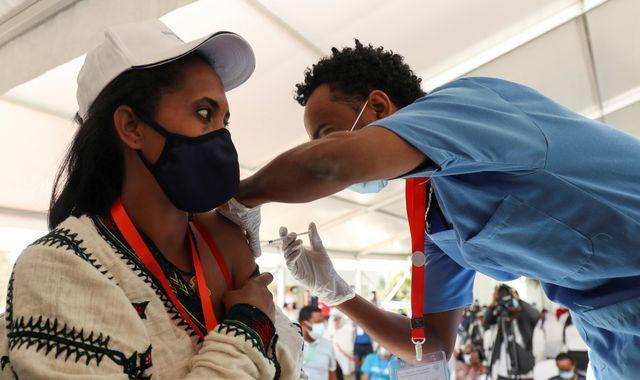G7 nations should donate surplus supplies to the vaccine sharing scheme as a minimum essential measure, says UNICEF.
It needs to be done to plug an emergency gap triggered by a drop off in Indian export. The COVAX scheme depends profoundly on doses of the AstraZeneca covid vaccine manufactured by the Serum Institute of India (SII). These are produced for the dozens of middle and low-income countries.
But India restrained exports of the jab to use it domestically to handle a second wave ripping through the country.
Sharing immediately available excess doses is an essential, minimum, and emergency to stop gap-measure. Adding said UNICEF executive director Henrietta Fore, it is needed right now.
She added that doing so will serve to stop vulnerable nations from becoming the next global hotspot.
India is fighting with a lethal second wave of COVID infections. With death tolls from the virus has reached around 4,000 a day, the new daily cases have risen to 281,386.
Additionally, more than 270,000 people have lost their lives from contracting the contagious COVID infection.
UN agency UNICEF manages the supply of COVID vaccines via COVAX. It estimates the shortfall in the supply of vaccines at 140 million doses by the end of May. Adding to it, around 190 million shots by the end of June.
What is said could be done to resolve the issue?
Ms Fore said G7 countries could donate about 153 million doses. Adding she said they shared just 20% of their available supply over June, July, and August. The numbers were from quoting new research from analytics and scientific information company Airfinity.
She said countries could accomplish this while still sufficing the responsibility to vaccinate their own population. However, Ms Henrietta Fore did not provide any further details on it.
UNICEF said that other producing limitations outside India have also delayed the supply of COVAX.
But it is expected that these delays in meeting the goals are likely to resolve by the end of June.




